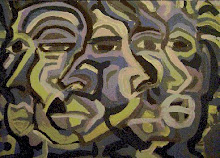 doll commented about suicide and it's relationship to ones inability to recognize the connection between ones perceived self (imagined to be perceived by others) and ones conscious self (imagined to be perceived by oneself).
doll commented about suicide and it's relationship to ones inability to recognize the connection between ones perceived self (imagined to be perceived by others) and ones conscious self (imagined to be perceived by oneself).SeeNew left a link;
http://www.scribd.com/doc/27850393/Ouspensky-a-Further-Record
which goes into great depth concerning ones self-awareness and it's effect (or affect) on ones performance.
While these may have not intentionally been left to be related - they are.
IMOHO - Suicide and seclusion are one and the same.
One would imagine that the unsuccessful and the under-rated were more prone to suicide.
But a SENG (http://sengifted.org) report states otherwise.
That many of those who are considered to be "excellent" are more prone to suffer from depression and that some may attempt or commit suicide.
Judging by the number of celebrities, who are thought by many to "Have it all", which suffer from some form of meltdown - even an excessive amount of financial and social status can produce some sort of detachment from ones reality.
This detachment seems to effect ones ability to subjectively make even the most mundane choices.
Many athletes or musicians, who suddenly acquire the fame and fortune most were seeking for the better parts of their lives, also seem to act-out in self-destructive behaviors.
But what is the common factor in this disparate group?
IMOHO - The answer is "excessive adulation" and the inability to reconcile what everyone else seemed to think of them with what they actually thought about themselves.
Dave Chappelle seemed to be doing fine making his little show by doing what he had always done.
But then Comedy Central decided to make Dave's often quoted exclamation, "I'm Rich Beotch!" true.
Dave could easily be one or two million dollars funny - but the stress of suddenly having to be $50,000,000.00 funny was too much for Dave to handle.
Dave could not reconcile his image of himself to that which a $50 million personality should be.
Charlie Parker, Micheal Jackson, Billie Holiday, John Belushi, Marylin Monroe,... - the list goes on - all seemed to have been ill prepared for the management of fame and the reconciliation of such adulation to ones own self-image.
So why don't the poor and undereducated commit suicide more often?
Well... the short answer is because they know that they are poor and under-educated.
Most have accepted their station in life and most just live within those societal values and norms.
"But even many of the poor act-out with irresponsible behaviors.", some might say.
Okay... True Dat.
But this is different.
These are those who can't accept their station in life but they also lack the ability, resources or volition to do anything about it.
Although some may have the volition, many just go about it in the wrong manner - i.e. selling drugs or robbing a bank.
(In this post - I'm focusing on those who have the abilities and resources - but they may lack the volition.)
"Volition" is an odd thing.
While usually understood to be synonymous with "desire" or "choice"- it isn't.
Volition requires action.
Volition may also require one to be humble enough to accept an undesired short-term station in life on ones way to their natural higher station.
Volition is doing what needs to be done even though one may not wish to do it.
The Bible relates a story concerning "volition" in the parable of "The Unjust Steward".
The steward is found wanting in his collection abilities and is set to be fired.
As he reasons, "I cannot dig, and to beg I am ashamed.".
The steward sees himself as being better than those who beg and not skilled enough to actually do any hard labor so he resolves to ingratiate himself amongst the impoverished.
In the end he gives them all the Hook-up and finds favor with his master as well.
I'm not saying whether his actions were good or bad - only that he exemplifies the problem with many today who don't have that which they desire.
That many see themselves as being better than one group while being unable to do the work of the other group.
That many only imagine themselves as better.
Whether one believes in the religious teachings of the Bible or not - the Bible does reflect millennia of knowledge passed from one generation to the next, interpreted from one culture to another.
The main focus of New Testament teachings revolves around "Humility".
Ofttimes "Humility" is required for one to 'shovel shit in the snow' to collect a pay check instead of waiting for a welfare check.
Humility is required so that one can admit that he may not know something before he can be taught.
Humility is required to make progress.
So, going back to doll's comment - The reaction of suicide is the lack of humility.














6 comments:
This is a meaty subject, and I'll join the buffet.
*ducks & covers*
There are so many reasons for suicide. I think of:
- despair and hopelessness in wanting someone that one can't have, ie, failed love relationship(s), not being popular with their chosen crowd,
- despair and hopelessness in wanting something that one can't get, ie, enough money to be self-supportive, the job in the field they can't break into,
- guilt and shame, over not being or living up to what one thinks they should be, (ie the student who jumps out the window over bad grades or lack of popularity)
- guilt and shame over something one did (war crimes, political embarrassment, school or career failure when this was a priority to others as much as oneself, getting caught embezzling in a high profile job, etc.)
- shock and hopelessness from seeing a side of another person they never really imagined (they discover their loved one betrayed or left them, or really never loved them)
- shock and hopeless from seeing a side of the world they never really imagined (vets who return and commit suicide)
- finding out the thing you want most in life, much more than anything else, will never, ever happen,
- being unable to kick a very mean drug or alcohol addiction that leaves you in a crazy, up and down cycle of moods,
- having bipolar illness: 25% of them commit suicide,
- unending 'brokeness' or new poverty so bad that you think you're better off dead to your kids 'cause then they can get the life insurance and your better off relatives will take care of them,
- having your dignity constantly disrepected due to your race, sex, gender identification (common among gays), being grossly unattractive,
- being old enough that all you've outlived all your family and friends, and you're so alone and lonely in a nursing home where you don't feel good
- learning that you have a fatal disease that will have a particularly painful end,
- self sacrifice for a greater cause, common in war, ie the cop or soldier who jumps on the bomb to absorb the impact to protect the others; or the terrorist 'martyr',
- not wanting to get old and fearing, yet embracing death, so you live recklessly while young and middle aged,
and so on. Nice, thought provoking post.
BTW, I read an interview with Dave Chappelle years ago, and I think he said he walked away from his show because in the third season, they started pressuring him to do jokes like they had better ideas than he did. Being rich enough already, he walked away. The other thing about him is he lives away from the celebrity life, preferring a normal life with his Asian wife, which surprised me as I'd never seen pictures of her.
i'M wary of comparing suicide rates of extremely rich to the poor/average because it ends up looking like it's a cause of death only for the rich. Suicide rates do increase when poverty figures go up.
A 2000-2002 study of suicides in Washington showed suicide was highest among Native Americans, Alaska Natives then Whites next were Hispanic peoples then Blackfolk.
In the UK, suicide is the 2nd leading cause of death among young males. There is a connection between suicide and socio-economic conditions, because the research shows "the unemployment rates of a sample of males and females who attempted suicide during the 1980s were considerably higher than the average unemployment rates for the age group."
Link
Damn KayDub, I'd forgotten about the rates of Native Americans.
My tribe always stresses these rates and I totally went off track.
I had a thought and assumed that I'd follow that path without actually thinking about what I had already known.
Thanks for the schooling.
@ KIT - reading your comments - suicide still seemes to be tied to "identity".
( Thinking; One is what he owns - not, One is NOT what he has.)
Using KayDub's cited article -
Native Americans
Whites
Hispanics
then Blacks.
Native Americans know that they have been usurped by a failing culture but many are powerless to do anything about.
They know that they are not who they are forced to be.
Whites are next on the list?
Gotta' think about this one for a while.
Hispanics are another indigenous group being put out of place.
Are the rates in Mexico higher than in America - or is the current American culture a factor?
Blacks are last on the list?
Given the images of most Blacks being poor, unemployed and uneducated - shouldn't Blacks be at least number two on the list?
Or do many Blacks just identify with their victim status?
While this topic is far too complex for one simple post - I'm still thinking that the way in which one identifies himself has a lot to do with the rates.
It surely is a big subject but I think you made a really good point with the celebrities, that they did not feel the way that they thought they should. So to bring it back to the addiction post I guess I was off target. Thinking of all the teenagers that suicide and how the people around them are so surprised, it could be that the kids didn't feel like the person every one else thought they were. I'm not certain that humility is quite correct but it is close. If they accepted the disconnect and worked to change perceptions then they would not need to escape in such a final way.
Post a Comment